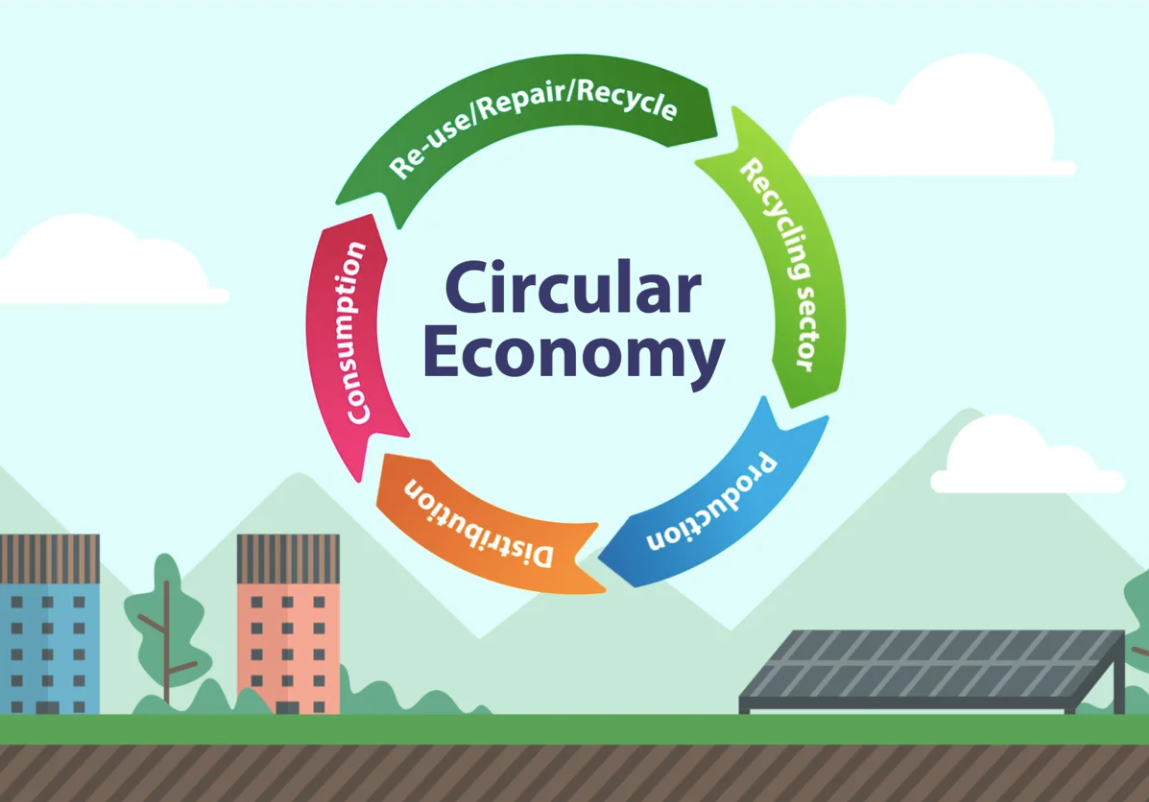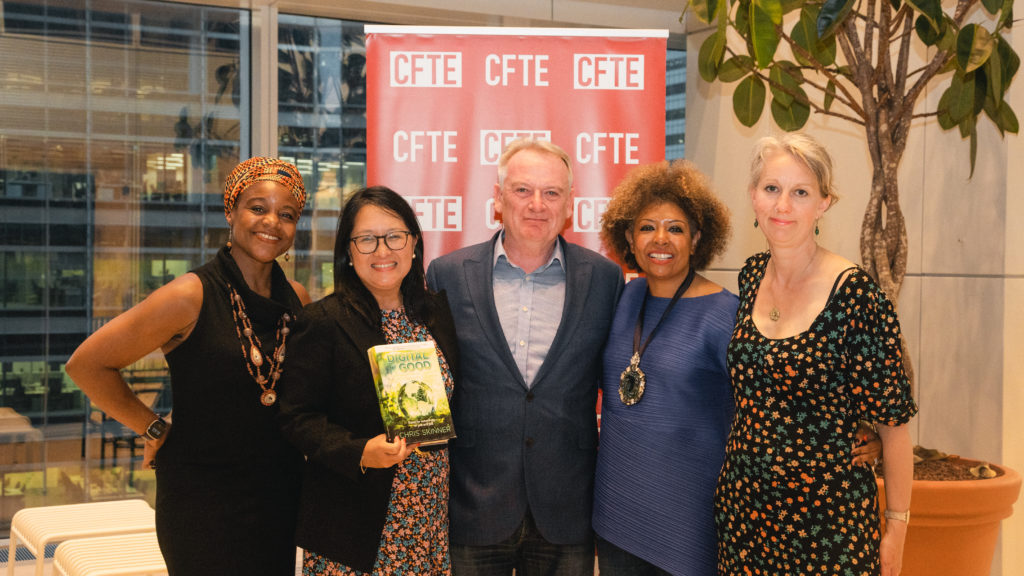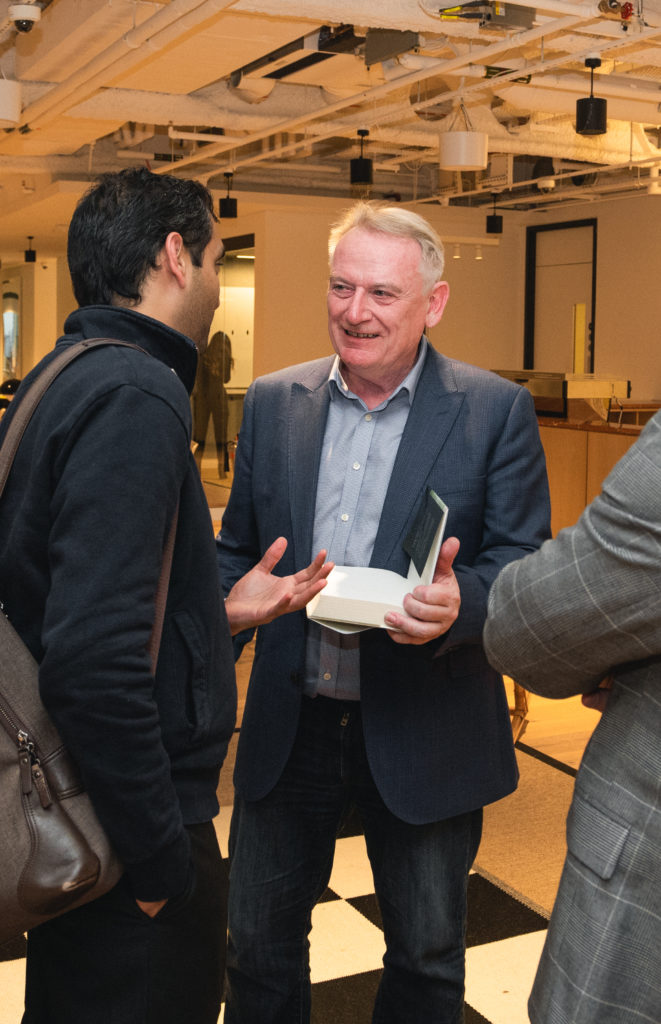
I launched the new book Digital for Good in London the other day, and was joined by many friends in my network. The main highlight of the event was a panel discussion on where we are going with four panellists:
- Gail Bradbrook, Co-founder, Extinction Rebellion
- Gihan A.M. Hyde, Founder & CEO, CommUnique
- Tram Anh Nguyen, Co-founder, CFTE
- Viola Llewellyn, President & Co-Founder, Ovamba Solutions, Inc.

It was a celebratory evening that was fun, even though many could not be there due to a sudden transport strike that shut down the underground system. Darn those militants!!! Oh, maybe not, as it takes militant action to get change, as Extinction Rebellion would say. Nevertheless, a good few folks made the trek to get a good discussion, a glass of wine and a free book.

The discussion started with the key themes of the book: ESG, focus upon stakeholders and not just shareholders, recognise transparency, have a clear purpose, and look to the next generation. It then narrowed down to a specific dialogue around solutions. What’s the right way for the future? The answer seemed to be two ideas: a circular economy or degrowth. What are they?
The circular economy is championed by people like Ellen MacArthur – remember her from sailing around the world? – and is defined by making everything sustainable and reusable. We have an economy that she defines as take-make-waste; we need to move to an economy that is take-make-reuse or, to be more exact, take, make, use, reuse, redistribute, repair, reproduce.
The circular economy is a systems solution framework that tackles global challenges like climate change, biodiversity loss, waste, and pollution. A circular economy decouples economic activity from the consumption of finite resources. It is a resilient system that is good for business, people and the environment.
Degrowth, on the other hand, is a planned reduction of energy and resource use designed to bring the economy back into balance with the living world in a way that reduces inequality and improves human well-being. Sounds good, but is far more radical as it argues we should stop making money out of the planet. Degrowth argues we should prioritise social and ecological wellbeing over corporate profit. That’s difficult for people driven by profit. You can find out more about degrowth but, for an easy to read, here's a good article from Glamour Magazine.
A circular economy or degrowth? Shareholder capitalism or stakeholder capitalism? What will be the future construct?
Well, I find it interesting as there is no simple answer. Climate Science puts it well however:
The ‘economy’ is itself an invention - something humans have made up. It’s actually changed a lot since it started! This means that capitalism with always increasing growth doesn’t have to be the main economic system. A different system might make it easier to stop climate change and other types of environmental damage. But finding good alternatives is tricky!
There are also plenty of academic papers out there, such as this one from Science Direct, which concludes:
It is not realistic to expect circular economy, degrowth or for that matter any sustainability philosophy to be all encompassing. Each conception and action will have limitations, blind angles, and unintended consequences. What is important is awareness of these limitations; and to explore how different approaches can build synergies through holistic strategies. In this regard the academic community, along with its transdisciplinary partners, plays an important role.
All in all, the debate is fascinating and, at the heart of this debate is finance and technology. Finance allows the shareholder, profit-based system to be reinforced; technology allows us to open up economic freedom to all. However, what economic freedom do we want?
Meantime, for those who missed it, here’s the highlights of the book launch evening:
Chris M Skinner
Chris Skinner is best known as an independent commentator on the financial markets through his blog, TheFinanser.com, as author of the bestselling book Digital Bank, and Chair of the European networking forum the Financial Services Club. He has been voted one of the most influential people in banking by The Financial Brand (as well as one of the best blogs), a FinTech Titan (Next Bank), one of the Fintech Leaders you need to follow (City AM, Deluxe and Jax Finance), as well as one of the Top 40 most influential people in financial technology by the Wall Street Journal's Financial News. To learn more click here...

